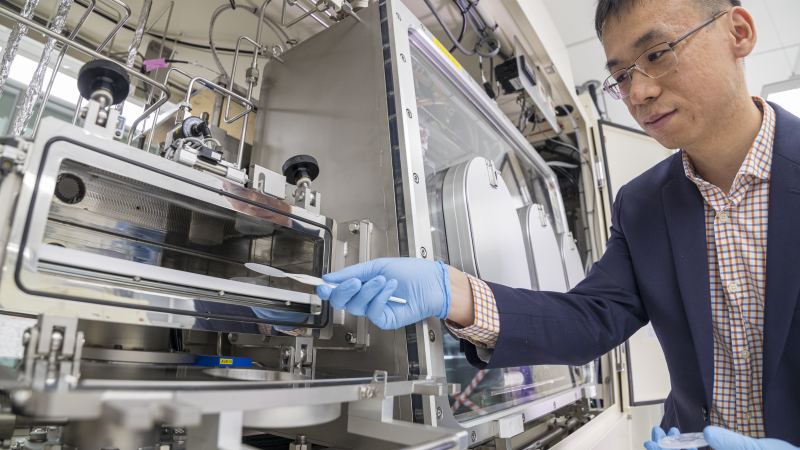By David Murphy
KAUST Assistant Professor Xiaohang Li was recently selected to the inaugural Georgia Tech Alumni Association 40 Under 40 class. From an initial pool of over 250 individuals, Li and 39 of his peers were successfully nominated by a committee of 26 Georgia Tech faculty, staff, and volunteer leaders. Each nominee was scored using a 25-point rubric system.
The 40 honorees—who, before the age of 40, have “innovated industries and positively impacted communities across the globe”—include trendsetters, entrepreneurs, Olympians, and business leaders. Li, who obtained his Ph.D. (’15) in electrical engineering from Georgia Tech, said he felt humbled to become a distinguished 40 Under 40 group member.
“I am quite proud and feel fortunate to be selected because Georgia Tech produces numerous outstanding alumni in many fields. Although, as a faculty member, there is still ample room for me to develop my research and teaching to match my outstanding colleagues at KAUST and beyond.”
“Accolades like this alum award motivate me to continue on my journey of discovery and innovation. I am delighted to see the research work of my group (and I) recognized through this award.”
Achieving pioneering results
Li, who joined KAUST in February 2016, has extensive research experience in III-nitride and III-oxide wide-bandgap semiconductors. In conjunction with his colleagues in the KAUST Advanced Semiconductor Laboratory (ASL), he focuses on the fundamental and applied research of wide-bandgap semiconductor materials, devices, physics, software, and hardware. The ASL team seeks to enable these technologies to revolutionize the energy, communications, biochemical, biomedical, and data storage industries.
“Our research contributes to essential devices, including UV LED, laser, and power devices,” he explained. “The UV LED, in particular, is critical in the suppression and prevention of the current pandemic and other diseases because it is among the most effective way of eliminating pathogens, including the novel coronavirus.
“In the past few years, we have demonstrated quite a few breakthrough results. Together with some outstanding colleagues, including Professors Ooi, Ohkawa, and Roqan, the number of publications from KAUST in this vital research area has consistently ranked among the top 10 universities and institutes worldwide.”
Along with his KAUST ASL colleagues, Li hopes to continue working on the frontier edge of wide-bandgap semiconductor research to produce world-leading solutions.
“In the meantime, I hope to help my students and postdocs to grow to become rising stars in the field, so they are among their peers from other leading institutions,” he emphasized.
